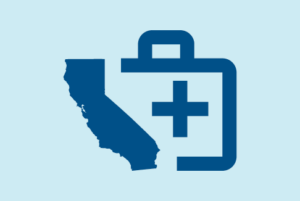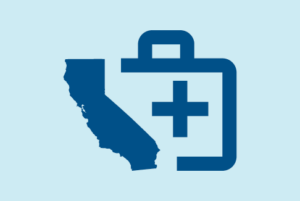For hospitals, the past year of responding to the COVID-19 pandemic was one of the most frenetic, intense periods in health care in memory.
For other sectors – restaurants, tourism, and more – things slowed to a snail’s pace. This is also true of government, where state and federal legislators in 2020 processed a limited number of bills as they focused on the crisis and their communities.
Now, that pent-up desire for policy advancement is surfacing in the form of a record number of state bills, including a raft of legislation that without significant amendments would be detrimental to your ability to care for patients and communities.
There are hundreds of bills this year that could impact health care, but three issues will be our top focus:
- Disaster preparedness modernization — Based on lessons learned in the pandemic, we must rethink disaster readiness policy in California to ensure care is available during and after any disaster, not just an earthquake. A $100 billion earthquake-only investment in disaster response is irresponsible and unresponsive to the pandemic. And this change will provide much needed financial relief to California hospitals.
- The right approach to addressing health care “affordability” — Working through proposals to establish an Office of Health Care Affordability to ensure that as the state coalesces around the goal of making health care more affordable, we do so in thoughtful and attainable ways, without the risk of unintended consequences to health care access and quality.
- Continued support for health care partnerships and integration — Ensuring that a proposal that would essentially freeze the market for mergers and other health care affiliations does not preclude entities from coming together and the many benefits that offers: lower costs, greater access to services, and support for struggling hospitals.
Other high-impact legislation this year:
- Bonus pay — A proposal we oppose that would require private health care employers to provide COVID-19-related bonus pay of $5 extra per hour to all non-executive employees retroactively to January 2021.
- Workers’ comp presumptive eligibility — Legislation we oppose that would create presumptive eligibility for workers’ compensation for a host of illnesses (infectious diseases, cancer, musculoskeletal injuries, post-traumatic stress disorder, respiratory diseases) for hospital employees who provide direct patient care.
- Health information exchange — A proposal we oppose that would mandate participation in a statewide data repository for health information, and another bill we support that would help provide grants to health care providers to implement or expand health information technology and support direct data exchange technical assistance for safety net providers.
- Policy-based limitations on physician services and certain partnerships — Proposals that would limit partnerships among UC hospitals and other systems based on policy restrictions on care. One would prohibit health facilities from requiring a doctor to comply with policies or criteria that are not explicitly accepted by the medical staff and add to the factors that may be considered by the Attorney General in determining the merger or sale of a not-for-profit facility.
- Nurse staffing ratio notification — A bill that would create a 40-day public comment period before the California Department of Public Health could grant a hospital’s request for a nurse-to-patient ratio waiver.
And important legislation we support, including:
- Health plan accountability — A bill that would codify fair and reasonable payment practices to hospitals by requiring health plans to pay claims as soon as possible, within a maximum of 20 calendar days, unless the claim is contested or denied.
- Behavioral health — A proposal we created to establish a full-time statewide director of crisis services. The director would be responsible for coordinating behavioral health programs and services statewide, to ensure continuity of services and access points and to enhance cross-agency information exchange and resource sharing.
These bills don’t even touch the federal legislation ahead of us. Already, the fight is on to extend the moratorium on the 2% Medicare sequester cuts that — if no action is taken — will resume April 1. Eliminating the cuts would provide critical financial assistance to California’s hospitals and health systems, which lost some $14 billion in revenue in 2020 alone due to COVID-19.
And there may be more federal relief opportunities later this year, which will entail an even greater effort given the multiple priorities making their way through Congress.
All of this means that while the nation may begin to emerge from the pandemic in the coming months, the legislative slog is just beginning. The long list of proposals this year — even more than in past years — demands intense focus, enhanced engagement from hospital leaders, and an understanding that we will stand strong where we must and work with others where we can to achieve the most reasonable outcomes for you and those you serve.
~ Carmela



